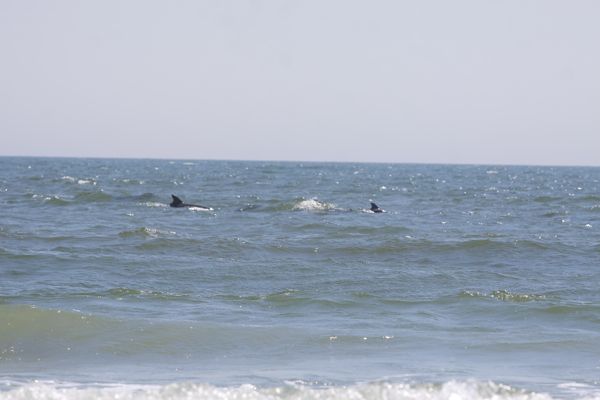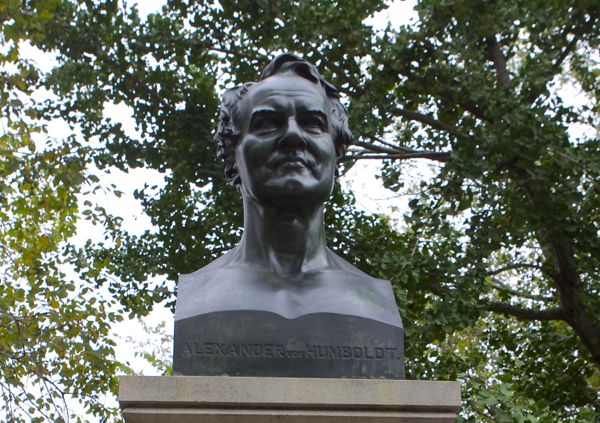As Threats To Ocean Ecosystems And Coastal Resources Increase, NJ Seeks To Ramp Up Science
The Senate Environment Committee released a bill today that would create the position of State Oceanographer in Rutgers University, see: S2491 (Smith, D-Middlesex).
The State Oceanographer would become a member of the Coastal and Ocean Protection Council, a body created by a 2007 bill signed into law by Governor Corzine in January 2008, see P.L. 2007, c. 288.
You can listen to the testimony here – the bill is the first one up. Josh Kohut, Associate Professor at the Center for Ocean Observing Leadership at Rutgers informed the Committee of lots of the cutting edge oceanographic work being done at Rutgers.
The bill is the natural evolution of more than 150 years of history, since the Morill Land Grant Act of 1862, and would make NJ the first state to name a State Oceanographer. The purpose of the land-grant colleges was:
without excluding other scientific and classical studies and including military tactic, to teach such branches of learning as are related to agriculture and the mechanic arts, in such manner as the legislatures of the States may respectively prescribe, in order to promote the liberal and practical education of the industrial classes in the several pursuits and professions in life.[6]
[Update: Holy Cow! How could Rutgers testimony & Senators fail to note this? Rutgers & Senator Smith and Bateman were at the vent!
- N.J. Legislature Honors Rutgers on the 150th Anniversary of its Designation as the State’s Land-Grant Institution – end update]
Since then, NJ has named a State Geologist, State Forester, and State Climatologist to bring science to public policy and natural resource management decisions and technical assistance and outreach to professional practitioners and government officials.
I testified in support of the bill.
Remarkably, I had to open my testimony by explaining this history to Senator Codey, former Governor Codey, as to why Rutgers, as NJ’s Morrill land Grant outreach institution, was the appropriate University for the State Oceanographer. Codey had objected to naming Rutgers in the bill.
Rutgers folks thanked me for that.
- The Demise of Ocean Protection Council and Ecosystem Management
My testimony also laid out the history of the Coastal and Ocean Protection Council (COPC), an initiative that I developed with my friend Benson Chiles and Senator Smith back in early 2007.
The intent of the COPC was to bring the best available science into DEP coastal and ocean policy and single purpose regulatory and management “silos” (programs), and to promote ecosystem based management (EBM) as the framework for multiple DEP programs.
The COPC law did 3 innovative things: 1) established a Council with essentially advisory powers (Smith would not support regulatory powers); 2) expanded DEP’s organic powers Act to authorize reliance on ecosystem based management as the basis for relevant DEP “plans and programs”; and 3) appropriated $75,000 in start up funds.
Unfortunately, the law (the COPC and EBM) were ignored by Gov. Corzine’s DEP. No appointments to the Council were made and it never met. The $75,000 appropriation was diverted to other purposes in the DEP budget.
[* correction – BC advises that there were some Corzine nominees confirmed by the Senate at the end of the Corzine term. See this for nominees. Apologies for that error.]
Worse, Gov. Christie’s Executive Order #15 resulted in a recommendation by DEP Commissioner Martin to abolish the Council. So, Corzine DEP neglect turned into Christie hostility.
- Troubling Questions About Politicization of Science and Scientific Integrity
In addition, because improved scientific support was one of the the primary reasons for the COPC/EBM law we wrote, I outlined troubling issues raised by the bill with respect to the politicization of science and scientific integrity that the State Oceanographer was sure to face.
Specifically, I noted 2 recent cases of abuse involving Rutgers scientists.
The first involved attempts by high level Christie DEP officials to intimidate a scientist: to pressure him to alter his data, findings, and recommendations; to not publish his work; to take his work down from a Rutgers website; to attack his reputation and credibility; and to threaten to defund his work – and all just because his research contradicted Christie DEP policies.
I am pleased to say that the scientist held his ground and was backed by Rutgers administrators.
The second case involves the DEP Science Advisory Board (SAB), Chaired by a Rutgers scientist (read the whole story with documents here: NEW JERSEY HANDS DRINKING WATER SAFEGUARDS TO DUPONT.
The most recent SAB Report recommended a chemical risk screening methodology developed by the Dupont Corporation. The transmittal letter to DEP Commissioner Martin from the SAB noted that the Report allowed for “significant input” by a Dupont representative on the SAB, John Gannon.
That is a gross breach of scientific ethics and presents a conflict of interest and scientific bias.
In fact, it violated DEP’s own SAB ethics Guidelines.
But, it is deeply doubling that no one on the SAB, including the Rutgers Chair who transmitted the report and noted Dupont’s involvement, stood up to object to these unethical practices and blew the whistle to stop them. Obviously, political intimidation very likely was involved, especially in light of case #1, which sent a message in Rutgers and elsewhere.
I explained to the Committee that these types of potential for abuse cries out for amendments to shield the COPC scientists and State Oceanographer from political pressure.
I suggested enhanced transparency, perhaps an annual public Report that outlined the State Oceanographer’s work would help.
- Need for Leadership
I bluntly told the Committee that the State Oceanographer has to be more aggressive in injecting the science into policy than the State Climatologist, who has mostly sat on the sidelines as Gov. Christie has dismantled climate programs, diverted over $1 billion in climate funds, and denied the implications of climante science.
I also suggested that if the State Oceanographer would be more than a ceremonial post, then additional resources and mandates to DEP were needed.
I requested an amendment to restore $75,000 initial funding of the COPC and some kind of mechanisms to force appointments and incorporation of EBM in DEP policy and regulations.
Chairman Smith said the COPC appointments and appropriation would kill the bill, but he did support the recommendation for an annual Report and the bill was amended accordingly.
The bill was released without recommendation, due to Senator Codey’s inexplicable objection to naming Rutgers.
This is a good bill and we urge your support, especially as climate change – ocean acidification, ocean warming, overfishing, pollution, habitat destruction, coastal storms, etc – vastly increases the importance of the ocean.



Pingback: lululemon canada
Pingback: ray bans replica
Pingback: lululemon canada
Pingback: http://www.whatsupmuskoka.com/sitepages/pollnews.asp
Pingback: Cheap Beats Headphones
Pingback: cheap wow gold
Pingback: Cheap Ray Ban Sunglasses
Pingback: pay4you
Pingback: Lululemon Outlet Online
Pingback: Christian Louboutin Replica
Pingback: http://www.dancewithme.co.nz/Navigation.aspx
Pingback: Lululemon Outlet
Pingback: nike air max 90 navy
Pingback: nike air max edge
Pingback: newest nike mercurial
Pingback: vintage ray ban
Pingback: canada goose jacket
Pingback: pengertian observasi
Pingback: pengertian estetika
Pingback: pengertian pelajar
Pingback: pengertian siswa
Pingback: contoh karangan argumentasi
Pingback: tata cara sholat berjamaah
Pingback: cara berhubungan intim menurut islam
Pingback: doa ulang tahun untuk diri sendiri
Pingback: pengertian estetika
Pingback: jodoh menurut islam
Pingback: pengertian komunitas
Pingback: pengertian disiplin
Pingback: perbedaan demokrasi langsung dan tidak langsung
Pingback: arti signifikan
Pingback: contoh variabel penelitian
Pingback: tata cara sholat berjamaah
Pingback: jodoh menurut islam
Pingback: contoh limbah rumah tangga
Pingback: pengertian bukan warga negara
Pingback: pengertian dokumentasi
Pingback: jodoh dalam islam
Pingback: WolfeNotes.com » What Ever Happened To The NJ Coastal And Ocean Protection Council?